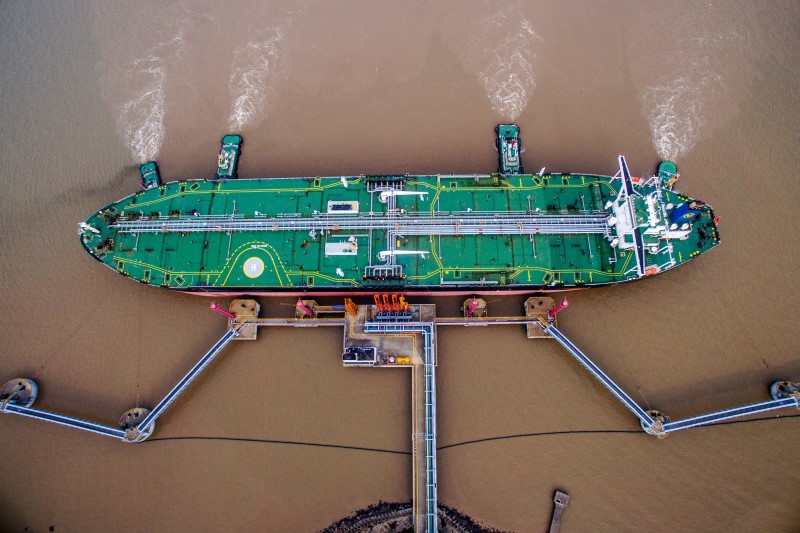US stock futures flat after Wall St drops on Trump tariffs, soft jobs data
LONDON, April 15 (Reuters) - Slow demand showed no sign of
abating on Wednesday as futures prices plunged dramatically and
demand remained elusive as glimmers of East Asian buying again
dimmed in recent days.
NIGERIA
* At least 50 cargoes of April and May loading crude
remained unsold as June programmes were expected likely early
next week.
* The International Energy Agency (IEA) put Nigeria's output
at 1.76 million barrels per day (bpd) in early April, set to
decrease down to 1.41 from May amid a producer cut pact.
* With average costs estimated at around $40 a barrel, the
IEA warned some production could become uneconomic and final
investment decisions such as on the Bonga Southwest project may
suffer.
ANGOLA
* Angola's state firm Sonangol still sought sell its cargoes
of May-loading CLOV and Dalia, traders said, with both offered
at around dated Brent minus $5 a barrel.
* The preliminary June programme should emerge on Thursday
or Friday.
* The IEA noted April output of around 1.4 million bpd was
set to fall to 1.18 million bpd and that with a break-even price
also of $40 a barrel the country's largely offshore industry
faced difficulties.
TENDERS
* Indonesia's Pertamina has issued tenders seeking 1.9
million barrels of crude to be delivered between the 5-25 of
each month in the second half of 2020.
* Pertamina is also offering for sale 600,000 barrels of
Indonesian Banyu Urip crude as well as 410,000 barrels of
Algerian Saharan Blend.
RELATED NEWS
* Days after OPEC+ reached a record deal to cut oil output
in an attempt to shore up a market reeling from the coronavirus
crisis, their calculations are in question. * U.S. crude oil stockpiles rose by 19 million barrels last
week, the biggest one-week increase in history, the U.S. Energy
Information Administration said, as refiners throttled back
activity due to slumping demand as a result of the coronavirus
pandemic. * Dozens of tankers holding jet fuel and gasoline are at
anchor in sea lanes around Europe's main storage hubs, unable to
discharge their cargoes as onshore tanks are full to capacity
following the collapse in demand.
